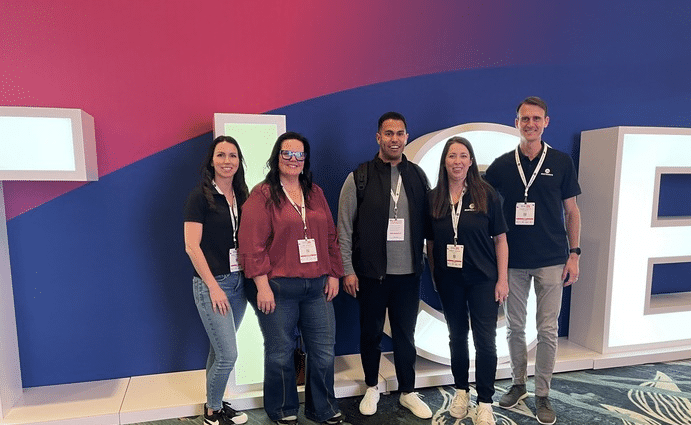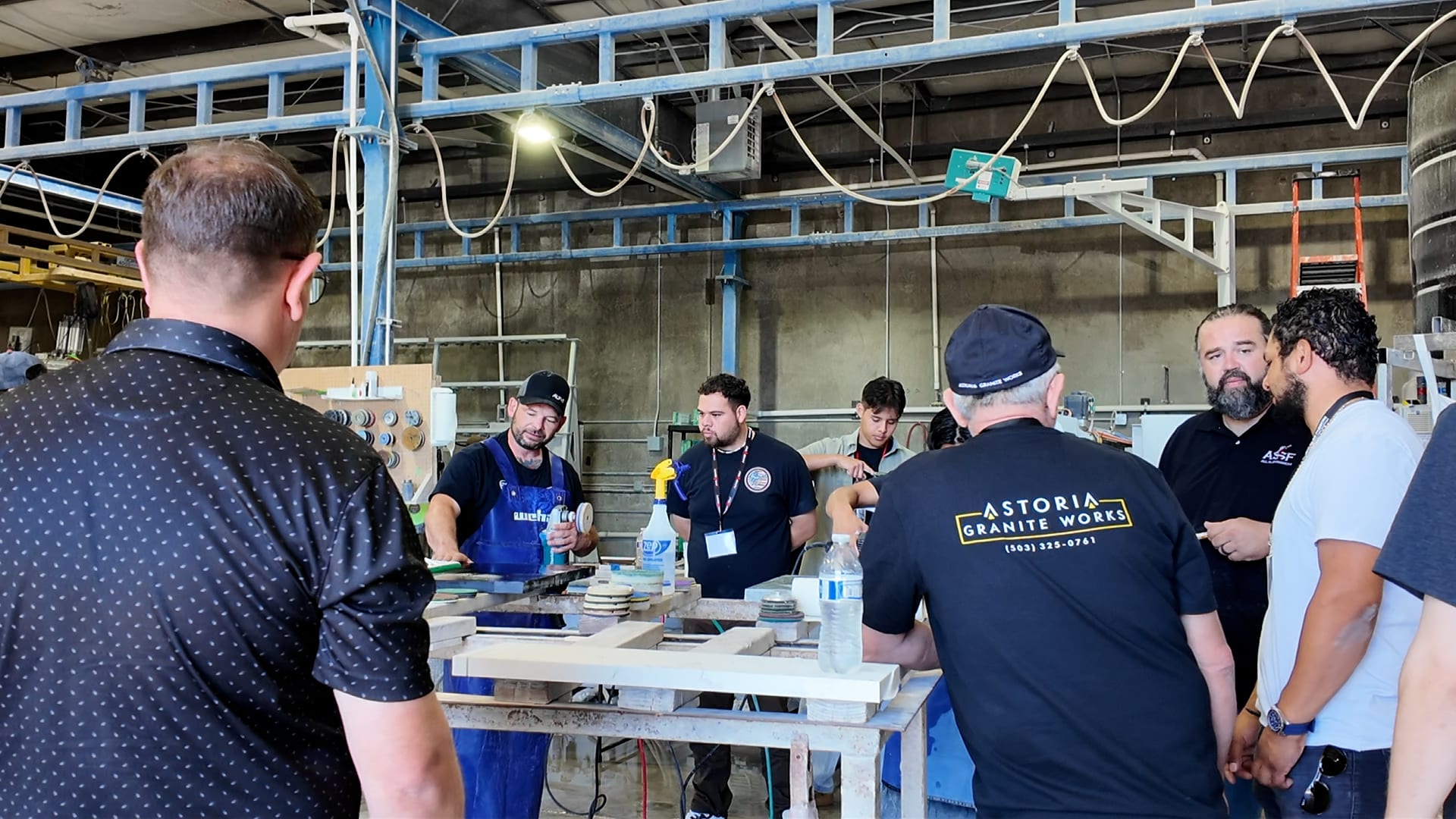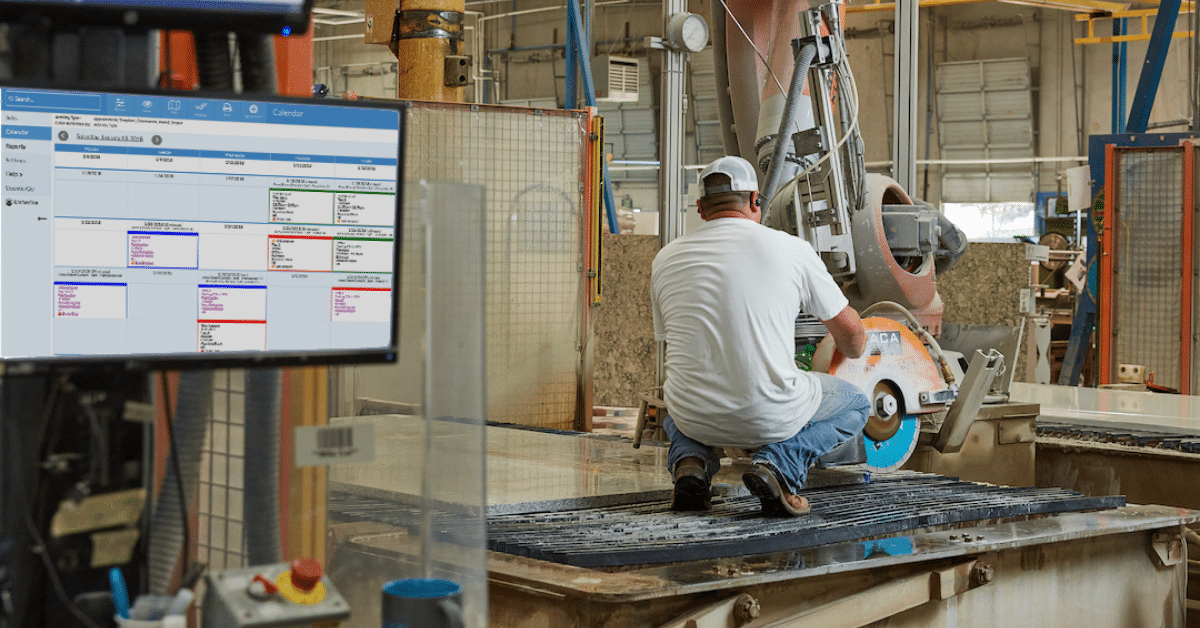When Miles Crowe started out in business in 2003 with one other employee the goal was to fabricate and install one kitchen per week. Turns out, Crowe had orders for five countertops, which meant he had already oversold his capacity. “We’ve been trying to catch up ever since,” he says.
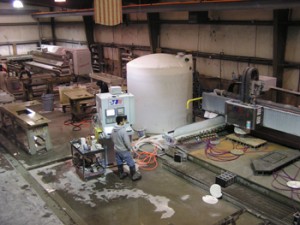 Even during the recession, which seemed to hit the Atlanta area particularly hard, Crowe’s Custom Countertops continued to expand. “When the recession hit we were in a good position,” Crowe remembers.
Even during the recession, which seemed to hit the Atlanta area particularly hard, Crowe’s Custom Countertops continued to expand. “When the recession hit we were in a good position,” Crowe remembers.
“There were a few contributing factors. The first was our clientele – we sold almost exclusively to retail with very few builders. Second, we have pretty much always been a COD business with our vendors. So when the recession hit we were approached by a lot of people offering deals on material. We weren’t a very big shop, but they knew that our money was good so they came to us offering different opportunities.”
But everyone knows consumers had no money during the recession. Right? Not necessarily. “Once the customer realized the world wasn’t going to end, most of the people still had money to spend,” says Crowe.
“Combine that with the fact that people couldn’t sell their houses so a lot of them decided to invest in their homes. We had access to the retail customer and we felt like we found a way to address what those customers were looking for. They weren’t necessarily looking to spend less money, they were looking for more value in how they spent their money.”
The Right Offering
The folks at Crowe’s came to realize that the sweet spot in retail sales during the recession was to offer a greater perceived value. Thus, by spending what would have bought an Uba Tuba countertop in pre-recession dollars, consumers were able to budget the same amount of money and get a more exotic stone for their kitchen. The point is, they still had the cash – they just expected to get more for their money.
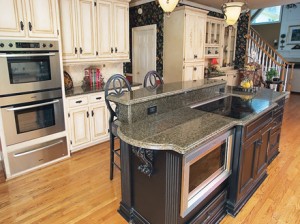
Today, Crowe’s Custom Countertops employs 40 people at its Acworth location and installs 40-50 kitchens per week. It specializes in granite, but offers nearly all types of countertop materials. The company has about 1,300 slabs of granite in its slab yard in roughly 110 colors and imports 8-10 containers of material per month.
Understanding Internet Sales
“We do a good bit of advertising on the Internet,” Crowe, explains. “It’s a different kind of customer. You have to build a system to sell to those people; you have to give them options. They have a budget and they will spend the money within that budget if you give them the option. So many of our competitors fight to get the customer and when they get them there they don’t have anything to offer them they can make money on. I don’t care how many Internet customers you get, if you can’t make money on them there is no future in it.”
“When someone comes to our website, the goal is to get them to contact us either by email or on the phone. Then, we want that to turn into a showroom visit. Once we get them in the showroom, we find that we close 75% of those customers. So really, it’s a numbers game. The more we get to our website, the more we can get to call us and the more that come to our showroom, the more we can turn into customers.”
Want to know more? At Moraware, we make software for countertop fabricators. CounterGo is countertop drawing, layout, and estimating software. JobTracker is scheduling software that helps you eliminate the time you waste looking for job folders. RemnantSwap is a free place to buy and sell granite remnants with fabricators near you.

